Crushing fatigue. Brain fog so dense one can barely form a sentence. Dizziness. Hives. Migraines. The kind of full-body crash that is able to leave a patient unable to function.
These are the symptoms that Makenna Kovach, a 29-year-old Women’s Health Coach from San Diego, was able to detect in a close friend during a girls trip.
Her friend, who happens to be a nurse, was at her wits’ end after seeing six different doctors, all of them failing to provide her with the relief she so desperately needed. But Makenna’s experience didn’t lie, and soon she came with a diagnosis:
Histamine intolerance and mast cell activation syndrome (MCAS)—a rare condition that causes the body to react as if it’s under constant allergic attack.
A woman went viral after recounting how she correctly diagnosed a friend in one minute after six doctors had failed

Image credits: maceperiod
Mackenna recalled the ordeal in a viral TikTok video with close to 1 million views. The moment happened in a car, right after picking her friend up from the airport.
Her friend, the nurse, began listing her symptoms: vertigo, extreme fatigue, migraines, skin flares, anxiety, brain fog, ear pressure, neck and trap tightness. Every word mirrored what Kovach had experienced the year prior.
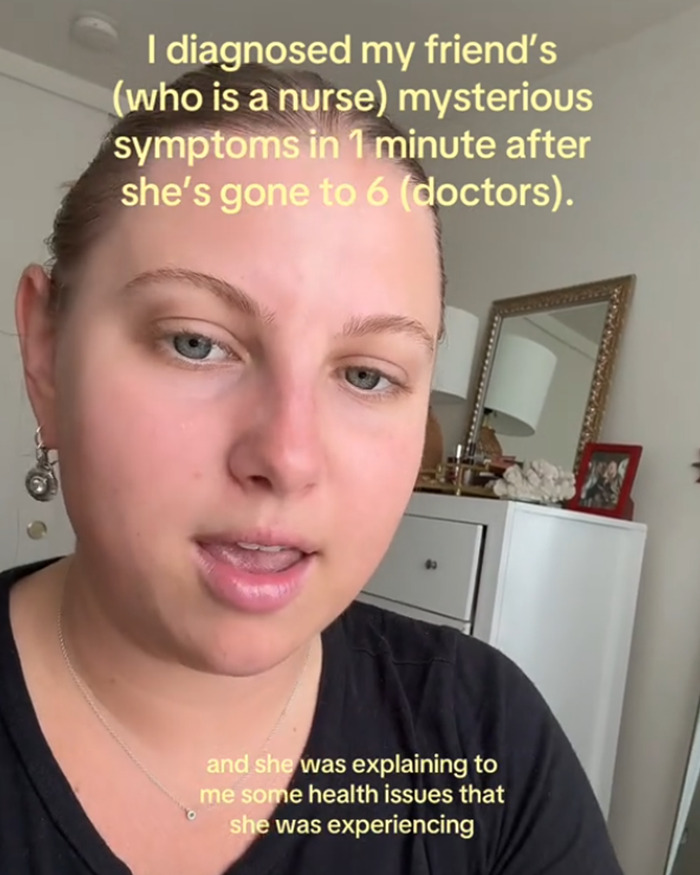
Image credits: maceperiod
“When I first had my major flare up it was bone deep fatigue, migraines, dizziness, vertigo, clogged ears, trap and neck tightness and pain, runny and itchy nose, eyes and ears,” Kovach explained in an interview with Newsweek.
Her friend had already been diagnosed with Ménière’s disease, clogged eustachian tubes, IBS, and general vertigo. The medication doctors gave her wasn’t working, and the pain persisted.
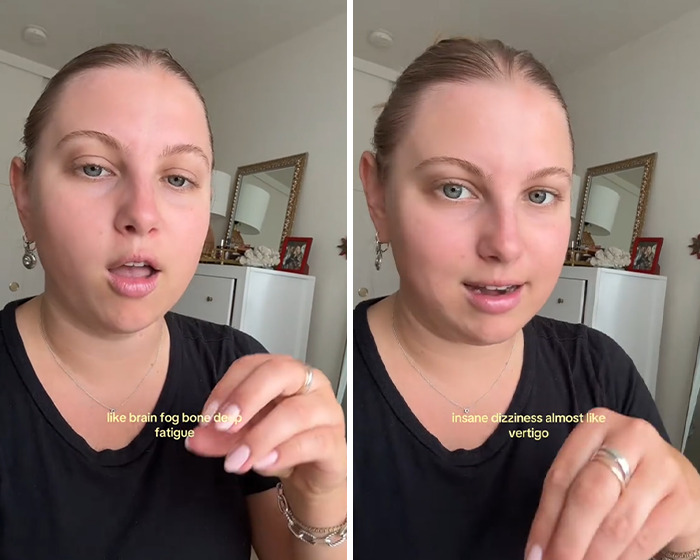
Image credits: maceperiod
That’s when Kovach asked one simple question:
“Are you hypermobile?”
The answer came fast: “Extremely.”
At that moment, everything aligned.
Symptoms of histamine intolerance are often misdiagnosed as the result of anxiety or unrelated illnesses

Image credits: fizkes/Adobe Stock (Not the actual photo)
According to general practitioner Dr. Tony Banerjee, histamine intolerance and MCAS are notoriously difficult to diagnose, and are often dismissed as anxiety or dietary sensitivity.
“Symptoms such as flushing, rashes, digestive upset, headaches, palpitations and brain fog often overlap with many other conditions,” Banerjee told Newsweek.

Image credits: Fxquadro/Adobe Stock (Not the actual photo)
Unlike a traditional allergy, histamine intolerance stems from a deficiency in the body’s ability to break histamine down. Many patients have low levels of DAO: an enzyme responsible for processing histamine in food.
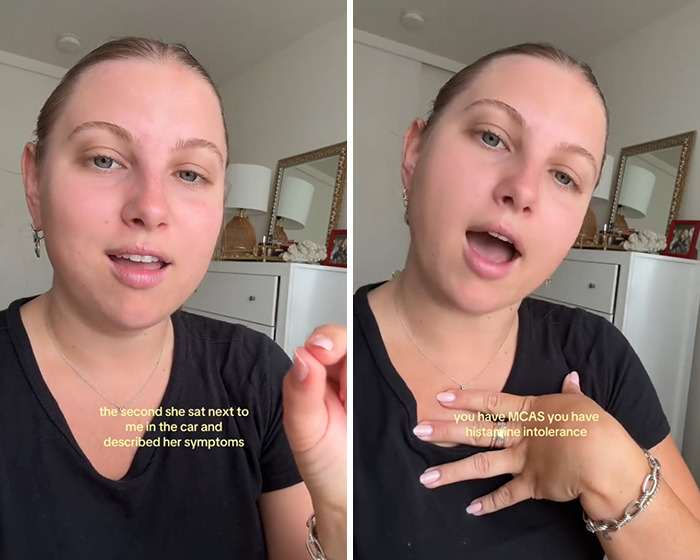
Image credits: maceperiod
But there’s another critical piece:
“Histamine intolerance and mast cell activation are more common in people with connective tissue disorders like hypermobility spectrum disorders and Ehlers-Danlos syndrome,” Banerjee explained.
Studies have shown that hypermobility is linked to histamine-related disorders, a connection that remains widely overlooked

Image credits: maceperiod
Peer-reviewed evidence and ongoing research links hypermobility with histamine issues.
For instance, a 2014 study by researchers at the Boston University School of Medicine found that patients with joint hypermobility were significantly more likely to report symptoms associated with mast cell dysfunction, such as flushing, gastrointestinal distress, and skin reactions.
The study concluded that connective tissue abnormalities may play a role in the regulation and behavior of mast cells.

Image credits: doucefleur/Adobe Stock (Not the actual photo)
A 2022 paper published by the NYIT College of Osteopathic Medicine further supported this overlap.
The authors found that patients with hypermobile Ehlers-Danlos syndrome (hEDS) or hypermobility spectrum disorder (HSD) often reported recurring allergic-type symptoms without testing positive for true allergies.
In layman’s terms: the very same characteristics that allow hypermobility can cause the body to overstimulate immune responses.
Having gone through the ordeal herself, Kovach provided her friend with immediate relief with over-the-counter medication

Image credits: maceperiod
Back on the girls trip, Kovach acted fast.
She took her friend to a pharmacy and bought three over-the-counter medications: a decongestant to relieve sinus pressure, a digestive enzyme to support histamine breakdown, and an antihistamine to calm the allergic reaction.
Within two hours, her friend said she felt better than she had in weeks.
Kovach later explained why she shared the story publicly:
“I wanted to help others understand the connections between hypermobility and histamine intolerance,” she explained. “These conditions are often misunderstood or overlooked.”
“I recognize how isolating it can feel when your symptoms don’t fit neatly into conventional medical boxes,” she added.
Many viewers saw themselves in Kovach’s friend and shared their own experiences of being misdiagnosed
“The more I learn, the more my life makes sense,” one user wrote.
Others shared how the clip gave them clarity they had never received from professionals.
“I’ve been sick for over a year,” one woman said.
“A year! No one could tell me what was wrong. All they could tell me was ‘low blood pressure.’ Well, guess what? I got on TikTok, got on Claritin and Pepcid. Now I’m a new person.”
Another viewer recounted how they had taken matters into their own hands after feeling dismissed by their physician.
“I started self-directed MCAS treatment a couple of weeks before seeing my doctor,” the viewer wrote.
“Doctor said, ‘Not my expertise, but I don’t see a big problem. Let’s get an X-ray of your knees.’ I said, ‘It’s systemic inflammation, but OK.’ X-rays were fine. I stayed on the MCAS protocol, and now my symptoms are actually going away.”
Being repeatedly misdiagnosed left many viewers distrustful of doctors





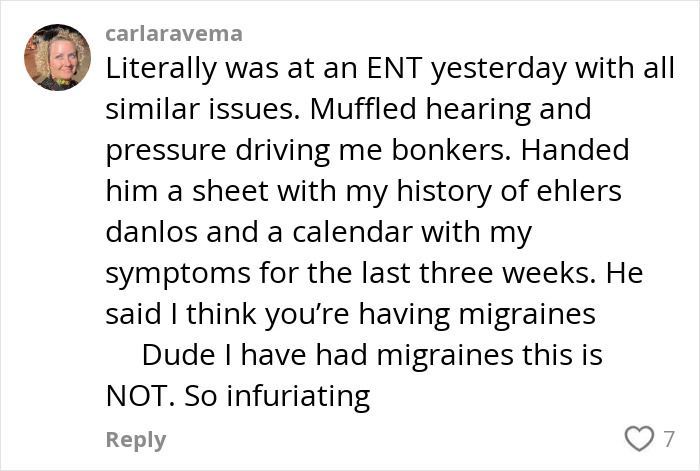

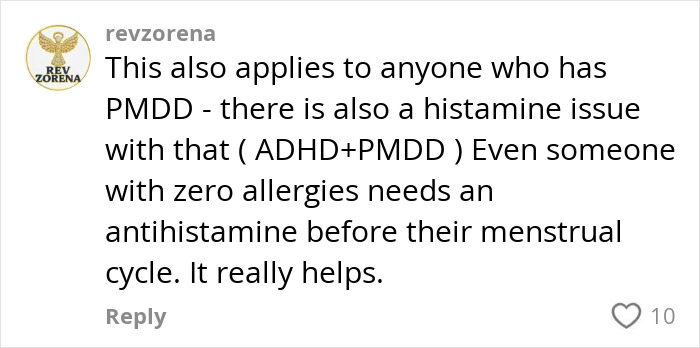

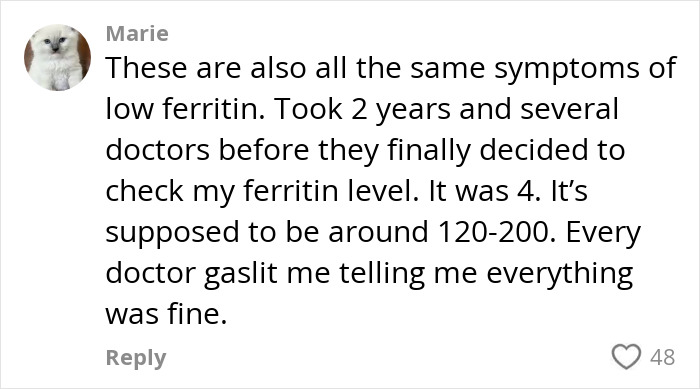









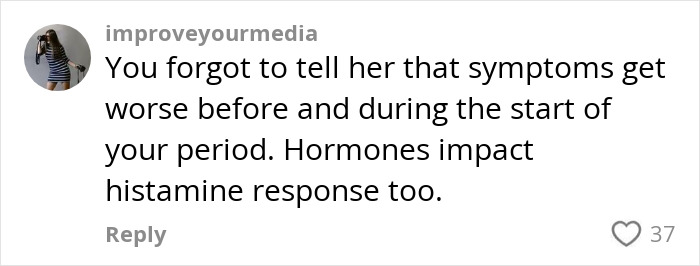
 Follow Us
Follow Us





